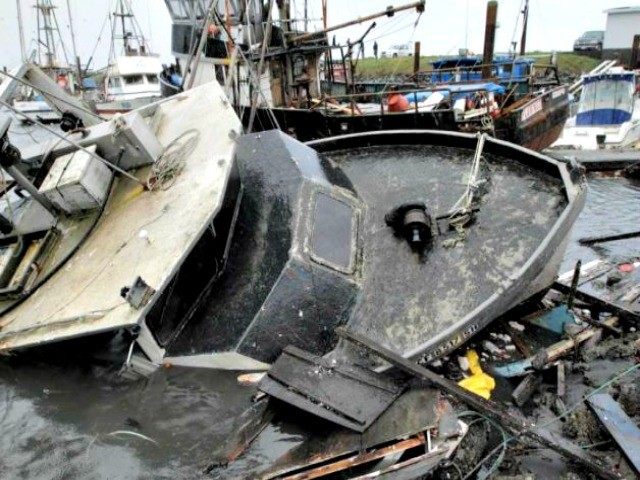A Stanford research study asserts that Catalina Island off the west coast of Southern California is slowly sinking, increasing tsunami risks for Los Angeles and Orange counties.
After taking underwater images of the island, positioned some 22 miles into the Pacific Ocean from Long Beach, the study’s author, Chris Castillo, urges that that the potential threat be further investigated.
Castillo’s study concluded it might take a while before the entire 48,000 acre land mass completely submerges. The Stanford graduate student predicts it could take about three million years to go under.
Officially called Santa Catalina Island, it is one of an eight island archipelago along the coast of Los Angeles County up to Ventura County. The island spans 21 miles and has a 54 mile perimeter. It is eight miles at its widest point and 1/2 mile wide at its narrowest point.
The Los Angeles Times reported that Castillo’s findings suggest that the side of Catalina closer to the coast is sinking faster, making the island tilt toward the mainland. Such sloping could produce landslides, Castillo warns.
This would not be the first time Catalina manifests submarine slides. The study’s images revealed that 500,000 years ago a huge underwater landslide took place off the island’s northeastern shore. Moreover, the images unveiled ancient beaches hidden below the ocean’s waves.
Castillo cautions that if a submarine landslide were to once again hit the island, the sliding rock and dirt could precipitate a tsunami, aiming the waves on a direct path to the ports of Los Angeles, Long Beach, and Orange County.
California Geological Survey’s tsunami program manager Rick Wilson finds fault with the study. He argues that landslide deposits from half a million years ago are no longer relevant. “We try to really focus on sources that happened either in the last 10,000 years or have the potential of occurring again in the very near future,” he explained.
“The whole island is tipping, so there definitely is a risk,” the researcher insists. The fact that landslides haven’t happened in a long time only increases the risk it will happen sooner than later, Castillo cautions.

COMMENTS
Please let us know if you're having issues with commenting.